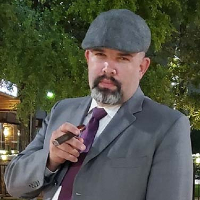Aubrey Juvenile Law Lawyer, Texas
Sponsored Law Firm
-
 x
x

Click For More Info:
-
Noemi A. Collie, P.C.
1012 N. Bishop Ave. Dallas, TX 75208» view mapCriminal Defense Law Standing Up For Your Rights
We are the region's leading law firm, and have been for more than 20 years. Don't face a criminal charge alone.
800-930-8960
Andrew M. Lloyd
✓ VERIFIEDJuvenile Law, Estate Planning, Bankruptcy, Car Accident, Family Law
Born just south of Dallas, and true to his Texas roots, Andrew M. Lloyd fights proudly for families and justice. He exemplifies the attitude contained... (more)
Jason Van Dyke
Criminal, Juvenile Law, Expungement, DUI-DWI, White Collar Crime
Denton, TX Criminal Defense Attorney
Throughout a tenure exceeding sixteen years, Mr. Van Dyke has dedicated his legal prowess as the general counsel for factoring companies, commercial d... (more)
James H. Horton
Juvenile Law, Estate Planning, Bankruptcy, Family Law,
Status: In Good Standing Licensed: 46 Years
John Anthony Ross
Juvenile Law, Personal Injury, Domestic Violence & Neglect, Mass Torts, DUI-DWI
Status: In Good Standing
Leah Marie Roberts Harbour
Family Law, Juvenile Law, Criminal
Status: In Good Standing Licensed: 20 Years
Edward Joshua Nolter
Juvenile Law, State Appellate Practice, Family Law, Personal Injury
Status: In Good Standing Licensed: 12 Years
Nathaniel Lewis Miller
Juvenile Law, Federal Appellate Practice, Domestic Violence & Neglect, , DUI-DWI
Status: In Good Standing Licensed: 16 Years
John Curtis Rentz
Juvenile Law, White Collar Crime, Felony, DUI-DWI, Criminal
Status: In Good Standing Licensed: 23 Years
Henry Curtis Paine
Federal Appellate Practice, Domestic Violence & Neglect, , Juvenile Law, DUI-DWI
Status: In Good Standing Licensed: 44 Years
 Noemi Collie Dallas, TX
Noemi Collie Dallas, TX Practice AreasExpertise
Practice AreasExpertise


